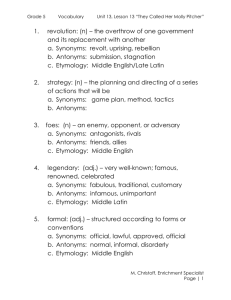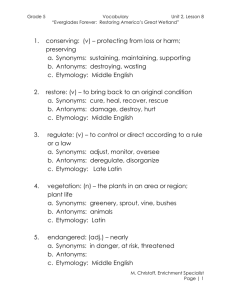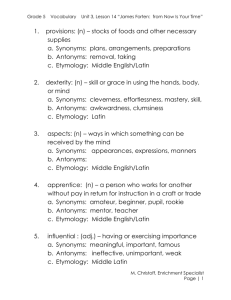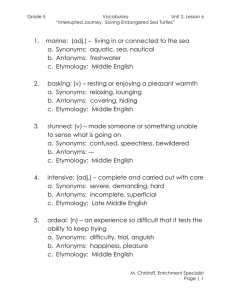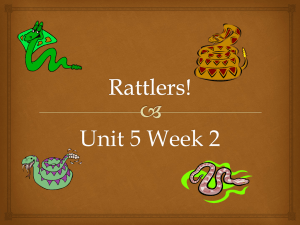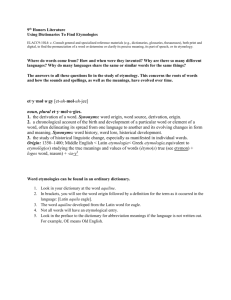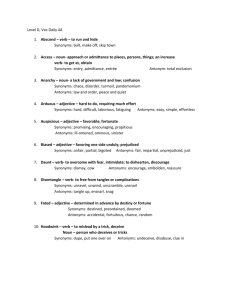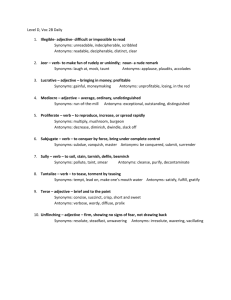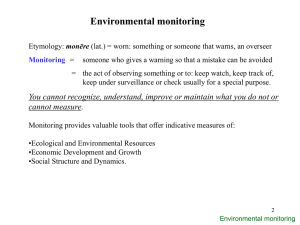WWTT Vocabulary - Field Local Schools
advertisement
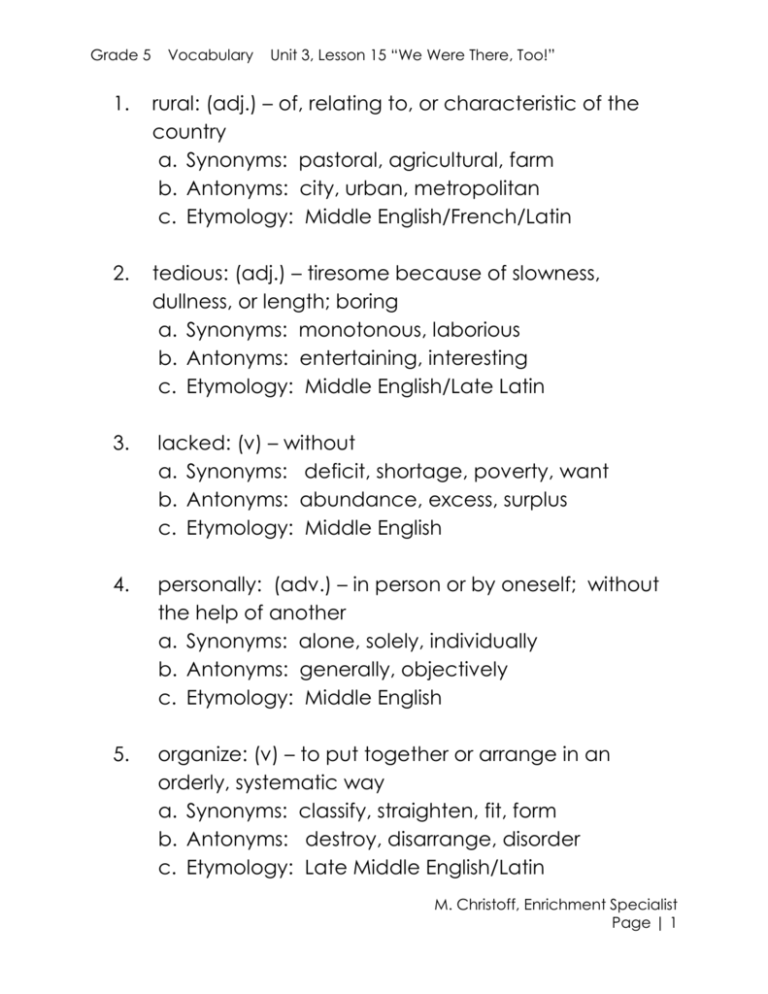
Grade 5 Vocabulary Unit 3, Lesson 15 “We Were There, Too!” 1. rural: (adj.) – of, relating to, or characteristic of the country a. Synonyms: pastoral, agricultural, farm b. Antonyms: city, urban, metropolitan c. Etymology: Middle English/French/Latin 2. tedious: (adj.) – tiresome because of slowness, dullness, or length; boring a. Synonyms: monotonous, laborious b. Antonyms: entertaining, interesting c. Etymology: Middle English/Late Latin 3. lacked: (v) – without a. Synonyms: deficit, shortage, poverty, want b. Antonyms: abundance, excess, surplus c. Etymology: Middle English 4. personally: (adv.) – in person or by oneself; without the help of another a. Synonyms: alone, solely, individually b. Antonyms: generally, objectively c. Etymology: Middle English 5. organize: (v) – to put together or arrange in an orderly, systematic way a. Synonyms: classify, straighten, fit, form b. Antonyms: destroy, disarrange, disorder c. Etymology: Late Middle English/Latin M. Christoff, Enrichment Specialist Page | 1 Grade 5 Vocabulary Unit 3, Lesson 15 “We Were There, Too!” 6. mocking: (v) – treating with scorn or contempt; deriding a. Synonyms: imitating, faking, imitatively b. Antonyms: authentic, genuine, flattering, praising c. Etymology: Middle English 7. efficient: (adj.) – acting or producing effectively with a minimum of waste, expense, or unnecessary effort a. Synonyms: accomplished, organized, skillful b. Antonyms: helpless, ineffective, weak c. Etymology: Middle English/Latin 8. summons: (v) – to call forth; muster a. Synonyms: beacons, calls, commands b. Antonyms: dismisses, sent away c. Etymology: Middle English/Latin 9. mimic: (adj.) – acting as an imitation a. Synonyms: actor, impersonator, performer b. Antonyms: c. Etymology: Latin 10. peal: (n) – a loud burst of noise a. Synonyms: blast, clamor, rumble b. Antonyms: whisper, faint c. Etymology: Middle English M. Christoff, Enrichment Specialist Page | 2

